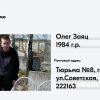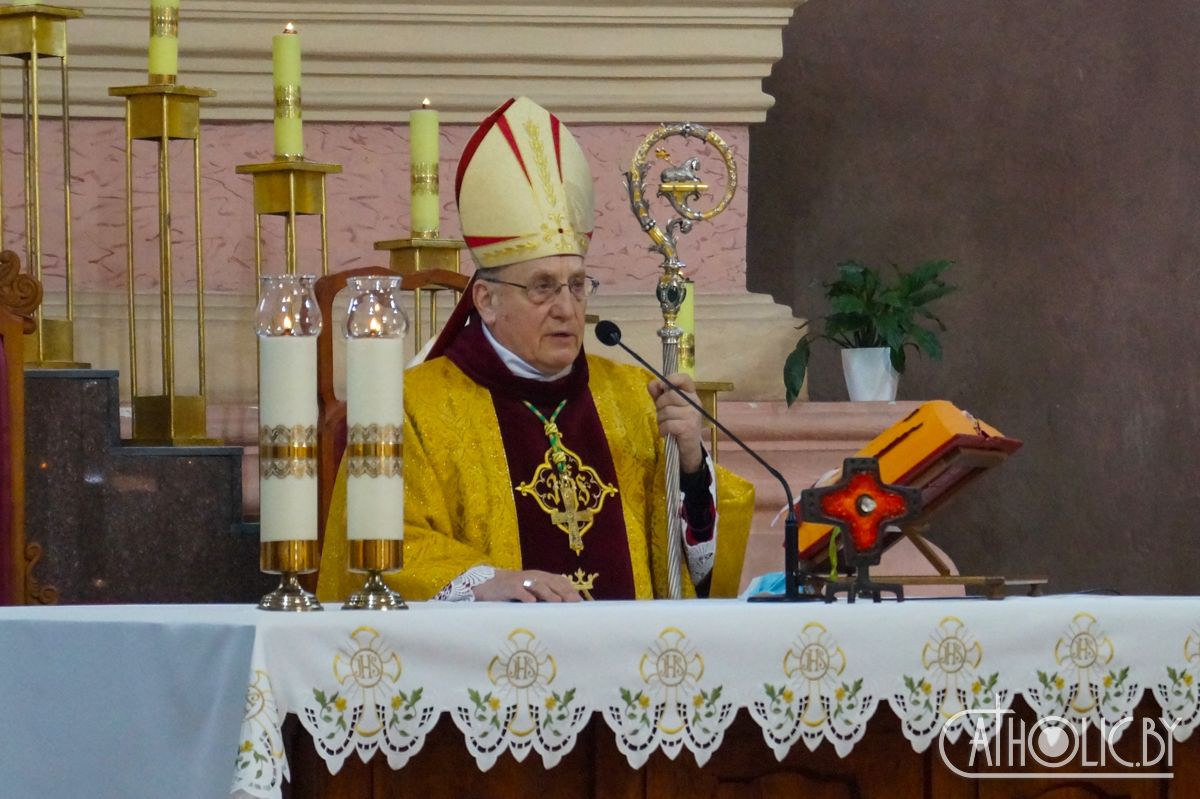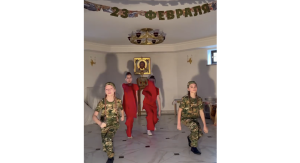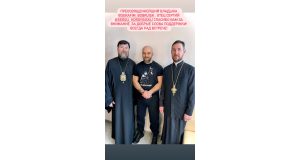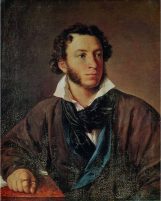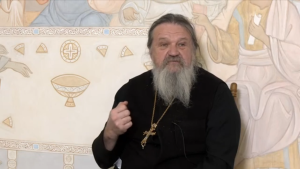The Navalny Protests and Orthodoxy’s A-Political Theology
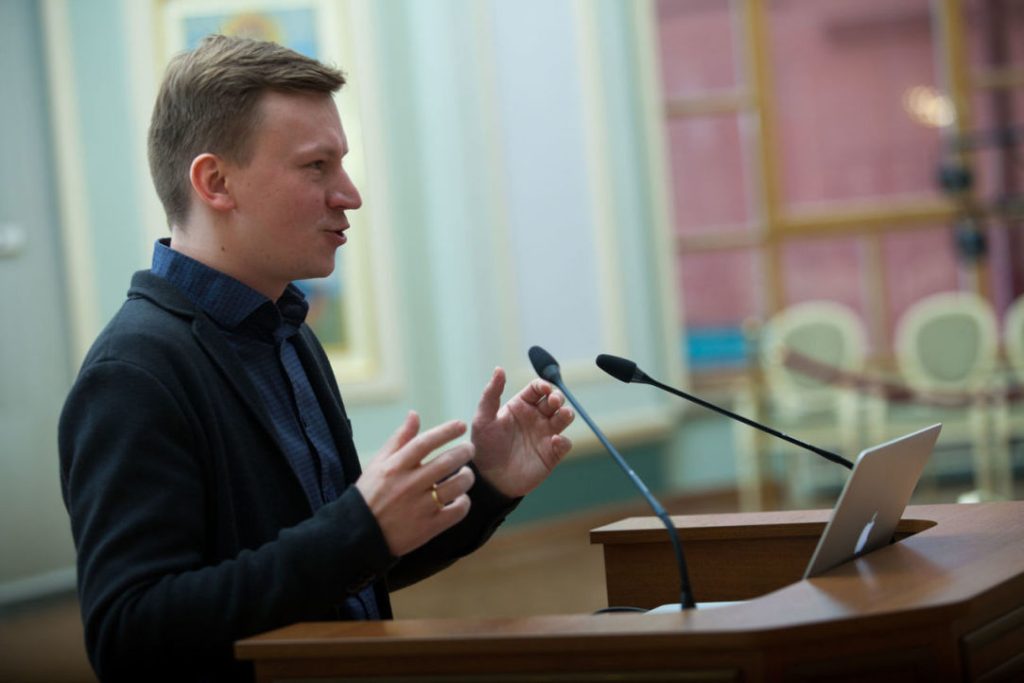

At the end of January, what were perhaps the largest protest rallies in the last ten years took place across Russia. The protests were sparked by the arrest of opposition politician Alexei Navalny, who had returned to his homeland after medical treatment in Germany. Back in August 2020, Russian special services had tried to poison him, and Navalny spent several weeks in a coma. Two days after returning to Russia, an investigative film about Vladimir Putin’s alleged private residence (“Putin’s palace”) was published on Navalny’s YouTube channel, where it has received more than 100 million views to date. These events became the starting point of the protests. During the rallies, the police carried out a record number of arrests, which caused a new wave of anger.
During times like this, the painful realization that Orthodox Christians, especially post-Soviet Orthodox Christians, do not have a theological language to speak about political events becomes especially acute. This is true both for those who are outraged by the authorities’ actions and for those who support them. Orthodox political speech today is discrete and is a repetition of the same old commonplaces: “There is no authority except from God”; “Not peace, but a sword”; “To Caesar what is Caesar’s”; “The church is outside politics.” But around these commonplaces, no narrative, no meanings or interpretations, no concrete rule or guidance is formed. They are thrown into the public space and immediately recoil back.
The poverty of Orthodox political speech is due to an insufficiently developed political theology and a lack of skill in reasoning theologically on political topics. Hence the perplexity when faced with political questions. And this perplexity is followed by irritation about Orthodoxy’s inability to speak out, to express an opinion in a language adequate to the situation and to a person’s religious outlook. The poor theological language, in which Orthodox hierarchs, theologians, and common believers speak about the political, is mainly intended to serve the current government or express radical political indifference. In both cases, this is not speech but “mumbling” around the words “symphony” or “political neutrality.” A person who speaks (or rather mumbles) in this way is like Hodor from Game of Thrones, who repeats tautological formulas: “The Church is outside politics because it is apolitical”; “The symphonic relationship between church and state presupposes a symphony.” In Game of Thrones, only shortly before the death of the character, it turns out that his mumbling had some meaning: “Hold the door!” The encounter with misunderstanding causes the speaker to feel his inferiority and simultaneously exclusiveness, unworldliness.
Orthodox Christians are often proud of their nonconformism—of not being led by the forces of this world. But this nonconformism and otherworldliness is often paradoxically combined with loyalty to the authorities and a shock dose of conspiracy theories. This is particularly true in Russia, where, in fact, too often Orthodoxy’s alleged otherworldliness turns out to be simple hypocrisy. For example, the head of the Department for External Church Relations of the Russian Orthodox Church, Metropolitan Hilarion Alfeyev, statedin his television program that the involvement of children and youngsters in the protest movement was unacceptable because the youth should remain outside politics. Still, he had never expressed any objections to the participation of children and youngsters in pro-state activities. The exarch of All Belarus, Metropolitan Veniamin Tupeko, has repeated many times over the past six months that the church should be out of politics. Still, amid the protests, he has awarded church orders to officials loyal to Alexander Lukashenko. The bestowing of church orders has a long tradition inside Orthodoxy and expresses the sacralization of political power, even if this power acts heretically or immoral. Orthodox believers are accustomed to seeing the face of a ruler in the light of a halo, be it a heretic emperor, Josef Stalin, or King Herod sending soldiers to kill babies in Bethlehem. The lesson: as an Orthodox, one cannot talk about political power; one can only mumble reverently before it. Any critic of authorities becomes an apostate, a heretic, an agent of the devilish forces.
The reason for the absence of Orthodox political theology in the Russian and global context lies in a more general crisis of Orthodox theology. Back at the beginning of the 20th century, after the first Russian revolution of 1905, which led to the emergence of the first Russian parliament, and especially after the Revolution of 1917, Russian religious thinkers were very actively involved in interpreting and shaping the new political order. Such figures as Nikolai Berdyaev, Fr. Sergiy Bulgakov, Semyon Frank; the “New City” project by George Fedotov, Fyodor Stepun, and Ilya Fondaminsky; mother Maria Skobtsova and many others offered original examples of Orthodox political theology. In a sense, they can be called political theological iconoclasts because they destroyed not icons of sacred authorities but idols in reality. But this short flash of Orthodox political theology in the world was quickly extinguished. The neo-patristic program that has come to prevail in Orthodox theology drove them to the margins. All of these thinkers fell under suspicion of being non-Orthodox. It suffices to recall the story of the bullying of Fedotov at the St. Sergius Theological Institute in Paris. For the Orthodox theological mainstream, these theologians were too liberal, too political, and therefore heretical. They were saved from oblivion only by being placed under the label of “religious philosophy.”
The leading theologians of the new era, Fr. George Florovsky and Fr. Alexander Schmemann, talked about the political already in the mumbling mode. Neopatristics, with its sacralization of the past and hatred towards modern philosophy, rather quickly turned from “forward to the fathers” to “back to the fathers” and gave rise to various historiosophical discourses like political hesychasm, Byzantinism, and “Moscow—the Third Rome” (in a modern version). In my country, after the end of communism, the apologetics of Orthodox Russia got out the old icons-idols of imperial power and deliberately darkened them to make them look older and holier. This is how, for example, the “Byzantine Lesson” by Met. Tikhon Shevkunov was intended and received by the audience.
Neopatristics brought back not only the holy fathers but also the ascetic fathers, making them popular and therefore normative for all Orthodox believers. As a result, a literal, traditional asceticism replaced ethics. The problem is that in the ascetic struggle with passions, there are no moral problems. There is no category of moral choice. Ideally, an ascetic should not think about worldly dilemmas at all. Thoughts, both good and bad, should be cut off. Orthodox asceticism teaches that even if God himself appears to you, you should not trust this vision because it may turn out to be the devil in a radiant guise. This attitude causes paranoia and fuels conspiracy mindedness. It is no secret that the main hotbeds of conspiracy theories in Orthodoxy are monasteries, especially those in which strict rules are in place, and where this literal, traditional asceticism is cultivated. Finally, the ascetic must give his will to the spiritual guide. And in those countries where the state claims to be a spiritual mentor, continually interfering with religion (as in Russia or Belarus), the Orthodox run the risk of falling into a trap. They cannot question their mentor’s actions. In combination with the voluntary sacralization of power, this has a stunning effect.
It is my deep conviction that the basic principles of the neo-patristic synthesis as a method in Orthodox theology has contributed to the development of conspiracy theories and the decline of ethics in contemporary Orthodoxy. Of course, when I say this, I mean the mainstream neo-patristic theology that flourishes in theological schools and is taught to future priests. There are outstanding examples of theologians who work in this paradigm and who cannot be accused of anything described above: Met. Kallistos Ware and John Zizioulas, Fr. John Behr, Andrew Louth, Cyril Hovorun, and others. But the average neo-patristic theologian, as a rule, casts doubt on their Orthodoxy.
The picture I have outlined looks rather sad. But there is still hope. On the one hand, a new generation of Orthodox theologians is emerging, for whom political theology is a way to find a language to speak with society. On the other hand, just like in the early 20th century, when social and political upheavals prompted Orthodox theologians to comprehend the political, also in the post-Soviet space, political theology is beginning to respond to current events. The upheaval began with the Ukrainian “Maidan theology” during the “Revolution of Dignity” in 2014. In 2019, a resonant open letter from Orthodox clergymen appeared in Russia in support of the defendants in the Moscow protest case. In 2020, public theology appeared in Belarus in response to election rigging, state violence, and church servility (An Appeal of Orthodox Christians in Belarus). Now in Russia, there are attempts to politically and theologically comprehend the story of Alexei Navalny’s return, his arrest, and mass protests (Fyodor Lyudogovsky, Alexander Morozov).
Orthodox political theology is born in response to political violence, injustice, and the church authorities’ inability to give a moral assessment of what is happening. What we witness now are so far episodic, barely connected initiatives. They remind one of the attempts of a person who has lost the ability to speak and has to learn to speak again. The voice is still weak, and the words are often confused. There is still a long rehabilitation period ahead.
Andrey Shishkov is Co-Founder and Executive Director of the Center for Advanced Theological Studies in Moscow, Russia and co-author of the Telegram channel “Orthodoxy and Zombies.”

